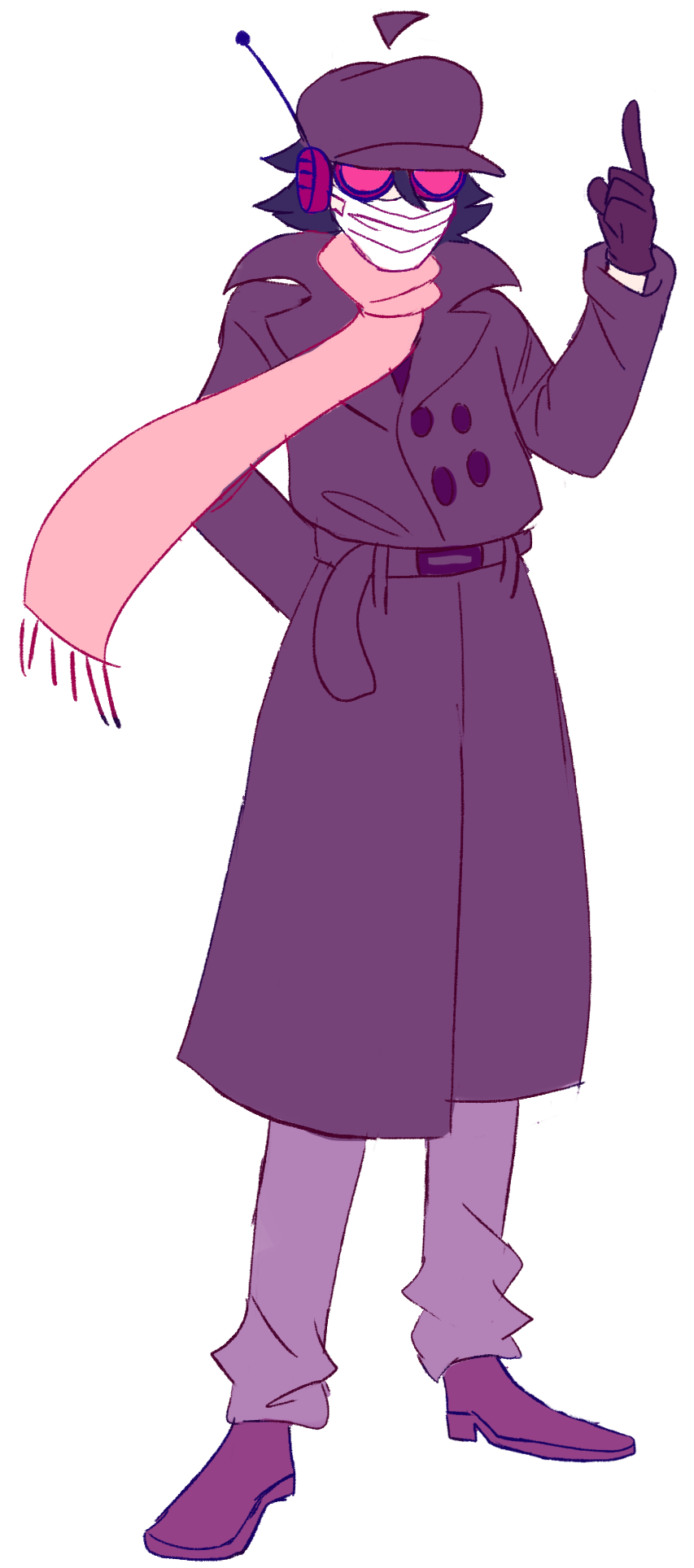Dr. Ernst
Opportunistic Scientist
Name: Ernst Schmidt
Age: 29
Height: 6'0" / 183 CM
Gender: Male (He / Him)
Birthday: October 1st
Education: PhD in mechanical engineering and a Master's in biomedical sciences.
Accomplishments: Invented the world's first walking toaster.


Author: Amaruu
Bio
Diligent, self-centered, expedient, Dr. Ernst tirelessly pursues in scientific endeavors for what he thinks would benefit humanity as a whole. The eccentric scientist boasts impressive knowledge and practical skill in both mechanical and biological fields, allowing him to seamlessly weave the power of his knowledge into creating machines that can integrate well into the biological world. Banished from Vitric, he now resides in ERA as a student for the purpose of studying electis and to see if he could use this knowledge to advance his creations for the betterment of the next generation.
Despite being a genius and a virtuoso in his fields of expertise, he is certainly not revered by much of society, especially during his occupation in Vitric. During most of his career, many would state that his personality and mannerisms were “nothing but problematic.” While a hard worker, he is very much self-centered and often touts that he is above his peers, refusing to work in a group for the most part. Additionally, his ethics were often brought into question by his fellow scientists, such as safety guidelines and the dangerous implications of some of his works. He is also very opportunistic, as he is willing to offer assistance to most people of varying moral compasses for the sake of benefiting his scientific endeavors. Lastly, due to his sheltered life and troubled past, Dr. Ernst has difficulty empathizing with other people and often views things from a more objective standpoint than subjective, leading him to act insensitive towards topics relating cultural norms and emotional subjects.
Electi
Healing Pulse: Whether it can be seen as irony to his self-centered mannerisms or a homage to his profession, Ernst possess an ability to mend flesh through touching the patient’s wound with his palm. By duplicating cells correspondent to the patient, the user effectively replaces dead cells with new ones for the wound to heal. However, such process is slow even for small lacerations, and may take considerable amount of time if the damages are severe. Ernst first discovered this power early in his childhood, when he unknowingly healed the wounds of his pet dog who suffered abuse from his father. Nowadays, the pragmatic scientist rarely ever uses this ability during his stay in ERA, though he has a bit of a reputation of being a “nurse” within the student dorms, much to his annoyance.
Upbringing
Ernst was born in Germany. He lived within a large family that were composed of his mother, father, and five siblings, Ernst being the youngest. His parents were well-known inventors, and had a reputation of being “cold, but efficient.” For the most part, his parents were often busy with their work, leaving him to spend most of his time with his siblings. When he and siblings did spend time with their parents, however, his parents were strict and authoritarian. His parents expected obedience and absolute discipline among their children, and if one of them were reprimanded and punished harshly, the rest of the siblings were told not to interfere. Ernst himself was subjected to harsh discipline along with his siblings several times through corporal means. During one of the punishments, his father stated that “if you fail and disappoint me again, I won’t let you lay a hand on my grave when I die.”
Ernst was considered a shy boy by his siblings, and often kept to himself. He was often seen as intimidating by his class peers due to his quiet and matter-of-fact nature, seeing him as a person that only says what needs to be said. His lonely nature was further exacerbated when his parents barred him and his siblings from making any friends, as they assumed that “it would hinder their studies.” Despite that however, when he is not in school, his siblings recalled that he has a compassionate and gentle side, often tending to his pet dog and playing with insects.
Later in his childhood, he and his siblings were well on their way in becoming next generation scientists. Ernst developed a curiosity in experimenting with dead animals, most commonly rats and frogs. Furthermore, he took a liking in tinkering with machinery and integrating them with dead animals to “see what makes it tick,” though this behavior made his peers and siblings concerned.